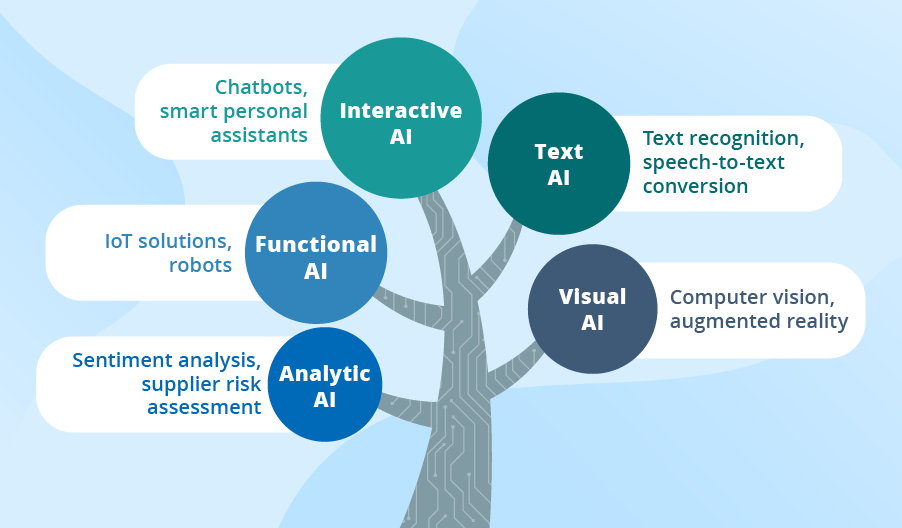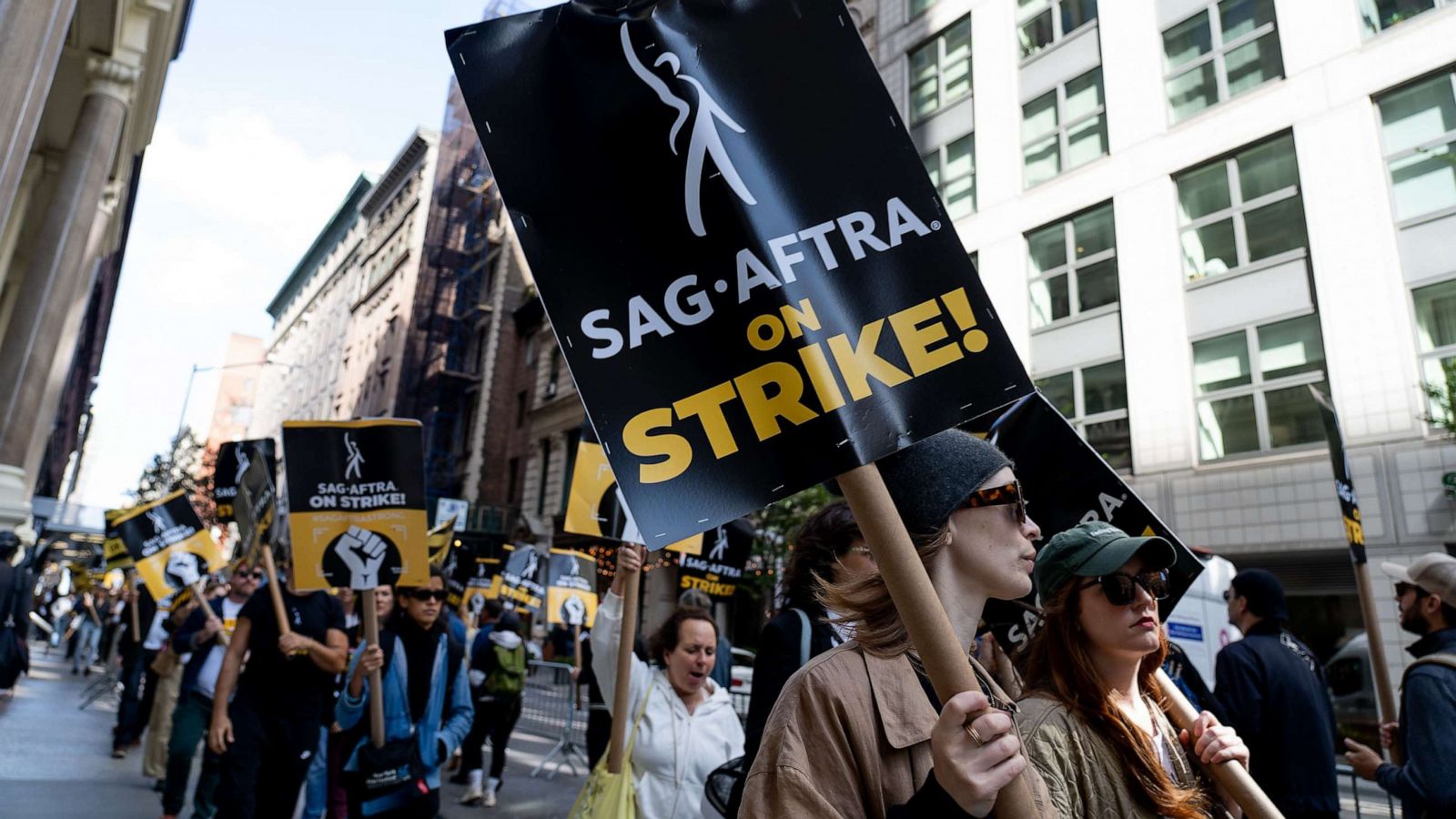Generative AI and your career: The impact of AI on the future job market
If you’ve ever wondered how AI could affect your career, you’re not alone.
In recent times, we’ve witnessed many conflicting strategies and approaches to using and regulating the use of AI. This, combined with the rapid evolution of the tools themselves, has left many questioning how AI might affect the future of work. Could generative AI help us be more productive? Will it replace our jobs? How do we ethically and effectively engage with these tools when there is so much uncertainty?
As part of our series looking at generative AI and your career, we’ve broken down how you can ethically use AI when job searching and the impact of ATS and AI on recruitment. In this blog post, we’ll dive into how AI affects jobs, what we know and don’t know about the future of AI in the workforce, and how you can upskill in the face of AI tools.
How AI is already affecting careers
Although generative AI has sparked a new wave of discussion about its impact on the future of work, artificial intelligence has played a role in our lives for decades. From smart speakers to social media algorithms and even translation tools, forms of AI have been increasingly integrated into our society since their inception. These tools have helped us streamline processes, be more efficient, and saved us from the dull mundanity of certain menial tasks.
Generative AI is a new tool to add to this growing list. However, its accelerated adoption has led to conflicting responses around the efficacy and ethics of using such software. In the face of this ambiguity, it’s worthwhile to outline what we do and don’t know about these tools and how they’ll affect work.
What we do know
1. Large-scale changes to work processes aren’t sudden
Many organisations and workplaces are rapidly adopting AI tools. However, adapting to new processes that integrate AI workflows will take time, much like previous technological shifts. So, while it may seem like it’s happening quickly, we also need to remember that lasting change is not as fast. There will be time and forewarning to be able to shift your work and your skills to adopt AI.
“Don’t misunderstand, though; it isn’t that the machines aren’t rising. It’s that they’re rising much more slowly than some of the more breathless media coverage might have you believe — which is great news for most of those who think AI-powered technology will soon steal their jobs.”
– Matthew Urwin, BuiltIn (source)
2. People are advocating for fair use
Amongst the fear and change, countless people and unions are actively advocating for AI’s ethical and fair use. We have seen this with the 2023 strike from SAG-AFTRA (Screen Actors Guild‐American Federation of Television and Radio Artists), negotiating to create equitable policies around AI. Individuals and organisations are already trying to shape the responsible use of generative AI.
3. New jobs and fields will emerge
Historically, technological advancements that impact the workplace have led to both the displacement of certain jobs, and the creation of new ones. The 2023 World Economic Forum Future of Jobs report projects that while 83 million jobs will be lost, 69 million jobs will be created by 2027. So, while that is a frightening prospect, there will be new roles and professional capabilities that emerge both related to and impacted by AI.
4. Human review is still essential
The current iteration of both generative AI models is far from perfect. Despite the capabilities of generative AI, human oversight remains crucial, especially as there are still pitfalls and issues surrounding its use. AI tools are not infallible, and human judgment is necessary for ethical and accurate outcomes. The need for AI literacy has never been greater, which is why it is so important that students and workers are taking proactive steps to learn about these systems.
“…this technology is in its early stages. It definitely still makes mistakes. We find that people are pretty sophisticated and understand where the mistakes are and that they need to be responsible for verifying what the models say, that they go off and check it.”
– Sam Altman, OpenAI Founder (source)
What we don’t know
1. How these tools will be taken up
The future of AI remains undetermined. In part, generative AI’s impact will depend on the uptake of organisations, individuals, and society in using and regulating AI. This will also continue to be shaped by the advocacy for fair use. While these models still pose significant risks, adaption will be slower and more cautious. However, if the tools are improved in future iterations, that could change.
2. How quickly AI will improve
Although generative AI has evolved rapidly in the past few years, it is still burdened by challenges. One issue that AI faces is generating what is referred to as ‘hallucinations‘, or false information that doesn’t have a source. Additionally, AI isn’t the best at complex tasks that involve multiple processes. And because they are often trained on biased data, AI models can exclude or be prejudiced against particular groups in their responses.
These issues will likely continue being addressed in future iterations, their impacts minimised as these tools are refined by the tech companies that create them. However, we are still unsure of how quickly this might play out.
“It can’t be emphasized enough that this is a new field. The landscape of risks and opportunities is likely to change rapidly in coming weeks, months, and years. New use cases are being tested monthly, and new models are likely to be developed in the coming years.”
– McKinsey digital, ‘What is generative AI?’
3. The impact of AI on specific sectors, industries, and roles
Ideas around which jobs are going to be most and least affected by AI vary greatly. Where one article might emphasise that jobs that involve human interaction – such as teachers or customer service roles – may remain unaffected by AI, even though these roles are already being impacted and altered because of AI systems (such as the change in supermarkets in recent years).
The impacts of AI are going to continue to grow, but how rapid that change is, how organisations and individuals will adapt to them, and exactly how industries might be affected still remains to be seen. Regardless, there are steps you can take to prepare for the future of work and the impact of AI.
Preparing for the future
If you’re wondering how you can prepare for your career when there is still so much uncertainty, there are a few things you can do. Here’s a checklist of ways you can get informed and feel ready for the future:
- Learn about AI and how it’s already being implemented in your industry.
- Experiment with AI tools, and practise how you might integrate them into your workflow.
- Develop your skills, such as reviewing, editing copy, prompt creation, analytical skills, creative skills, and people skills.
- Find out more about how the AI models you intend to use function and how you can ethically use them to avoid risks.
- Have conversations with employers, colleagues and your peers about how they use or could be using AI, and be open to different viewpoints on these tools.
Conclusion
Generative AI’s impact on careers is a mix of both knowns and unknowns. Amongst all this uncertainty, it’s essential to remember that although tools are being rapidly adopted, significant change takes time. The tools’ issues and shortfalls also mean that human review is still critical. Although the specific ways that AI models may change the workforce depends on uptake and adaption from organisations, individuals and unions are already pushing for fairer policies and ethical considerations around the use of AI, as seen with the SAG-AFTRA strikes. Navigating this uncertain landscape is easier when you are more informed, so consider discovering more about how AI might affect your industry and how you can be more prepared.
Finally, look after yourself and open up a dialogue about AI. Talking about these systems, collaborating, and working with one another to push through fear can help us step into a positive future shaped by AI.
This blog post is part of a series looking at how generative AI is influencing the world of work. Check out the rest of the posts in the series for more info. For more resources on UTS’s approach to generative AI, explore the UTS LX Lab resources on Artificial Intelligence in learning and teaching.
Featured image courtesy of Pexels

Amelia Bussing
Communications Assistant
Amelia is a Sydney-based writing and communications enthusiast working at UTS Careers as a Communications Assistant. She is UTS Alumni who studied a Bachelor of Communications (Creative Writing & Advertising), and a Bachelor of Creative Intelligence and Innovation. She is passionate about creativity, storytelling, and the art of a well-timed gif, and has a vast collection of crazy socks.





